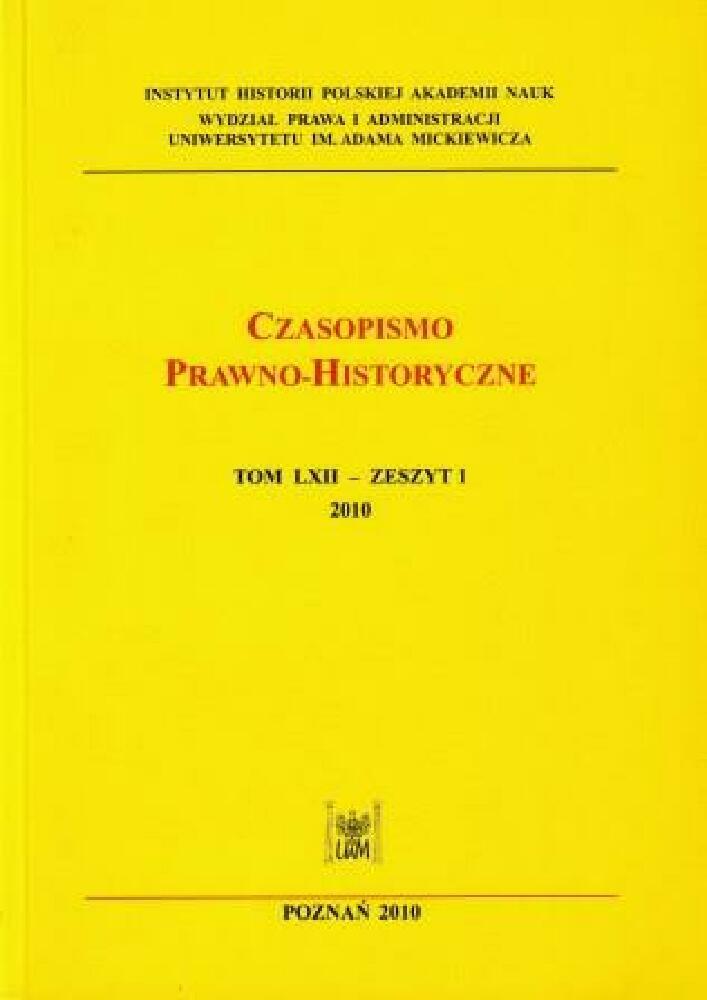Abstrakt
The Organic Statute of 26 February 1832 signed by tsar Nicholas I of Russia in the aftermath of the November Uprising 1830/31 replaced the autonomy of the Kingdom of Poland resulting from its personal union with the Russian Empire and reduced the Kingdom to one province of the Empire, leaving it, however, a certain separate political system. The Statute was of fundamental importance from the point of view of the functioning of the Kingdom of Poland and set out, in Articles 22-29 and 39-41, its ,final organisation' as well as its head, central and local authorities. The judiciary was constituted pursuant to Article 1 and Articles 55-67, while Articles 31-33 gave rise to such institutions as Department for the Matters of the Kingdom of Poland and the Secretariat of the State of the Kingdom of Poland. Article 18 set grounds for the formation of the Land Credit Society and the Bank of Poland. The provisions of Article 11 were referred to in the declaration of martial law in 1833, and those of Article 12 were relied on in the legalisation of the practice of sequestration and forfeiture. Article 13, in turn, gave the possibility to impose stricter censorship and culturally isolate the Kingdom of Poland, Articles 14-15 were used to justify free economic exploitation, while similar exploitation but of human material (such as 15-years of compulsory military service) was possible owing to the provisions of Article 20. Further, Articles 31 and 68 were referred to by the Imperial authorities in their attempts to implement in the Kingdom of Poland a social system similar to that in the Russian Empire, by inter alia, the imposition of the Laws on Nobility and the matrimonial Law of 1836. Pursuant to the provisions of Article 68, a special policy was developed at the end of the 1830s to unify and centralise the Kingdom of Poland with the Russian Empire, and the formation in 1839 of the Warsaw Scientific Society, the District Board of Communication District Board in 1846 and the Post District Board in 1852 are but a few examples. This anti-Polish policy pursued by the Russian Empire was temporarily stopped by Aleksander Wielopolski's reforms.
Finansowanie
Digitalizacja i Otwarty Dostęp dofinansowane przez Ministra Edukacji i Nauki w ramach umowy nr BIBL/SP/0002/2023/1
Licencja
Copyright© 2010 Wydział Prawa i Administracji UAM w PoznaniuOPEN ACCESS




